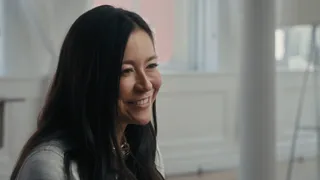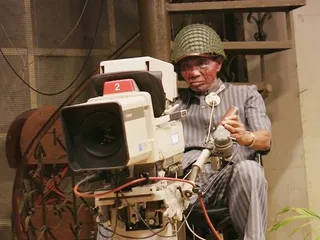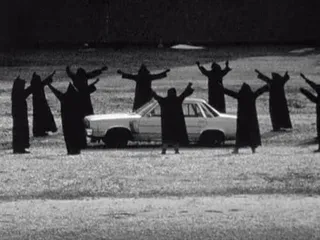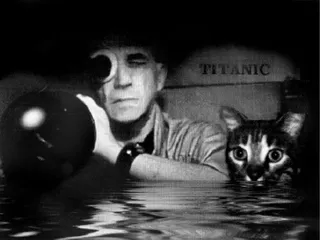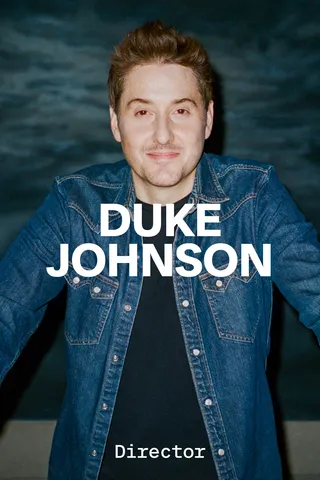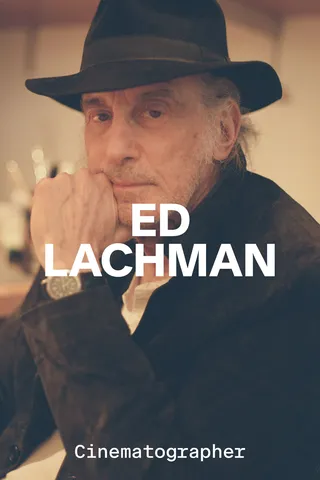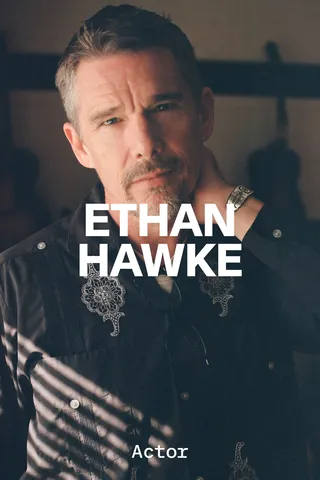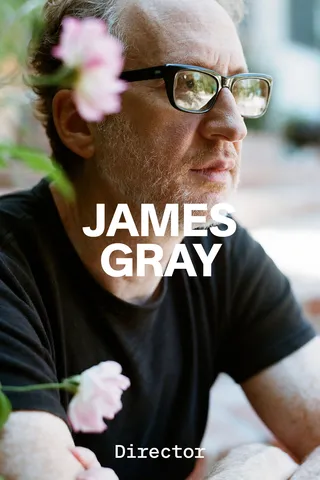Chai Vasarhelyi
Oscar-winning director Chai Vasarhelyi has covered a kaleidoscopic spectrum of topics and geographies in her films—former war zones in Kosovo, religious pilgrimages In Senegal, high-risk salvage missions in Thailand, mountain summits in India—but returns time and again to a central theme: tenacity in the face of overwhelming obstacles. That’s her subject, her professional modus operandi and also—perhaps unsurprisingly—a recurring motif of her curation for Galerie, articulated in a spate of works about the challenges of filmmaking itself, including American Movie, Sherman’s March and Lost in La Mancha. But Vasarhelyi’s selections also reflect her personal history (the daughter of a Hong Kong–raised CFO mother and a Hungarian-Brazilian professor father, she grew up in an intellectual, international household in New York City) and wide-ranging interests. Narrative features from the Asian diaspora stand alongside ’80s comedies and groundbreaking nonfiction works with political heft. “I have quite a diverse worldview and hopefully [the list] reflects that, especially when it comes to docs,” says Vasarhelyi. “I think it’s very easy for a lot of these documentaries to be lost in time, and they shouldn’t be.”
A PERSONAL MESSAGE
my FILM LIST
Click each title to discover our curator’s notes and where to watch
Still my go-to when I’m feeling down. Every single frame feels like a Toulouse-Lautrec painting. The subject matter is a little tricky when watching through contemporary eyes. Essentially it’s about the making of a young courtesan. I do believe it’s still subversive in its own right. There’s delight in the idea of a woman, full of life, coming into her own, awakening and rebelling against how society wants to see her.
{{ All Items }}I’ll never forget the experience of seeing Chronicle of a Summer for the first time. It’s a true achievement in vérité filmmaking, with revolutionary technological achievements in sound syncing. The film tracks the everyday lives of some Parisians. At the end they show the participants watching themselves on film. It’s a documentary that really pushes you to think about yourself as a viewer.
{{ All Items }}One of Chris Marker’s lesser-known films, it documents the first summer of peace in Paris after the Algerian War. There are these off-the-cuff, person-on-the-street interviews that capture the life of a vibrant, changing city. They speak to the changing society of this era as a whole, foreshadowing all the unrest that’s about to happen in 1968. There’s a sense of awakening and the end of a colonial power. In some ways it’s a cousin to The Battle of Algiers and an examination of how to come to terms with a violent past.
{{ All Items }}When I attended the Prague documentary film festival in 2004 with my first film, A Normal Life, I met the great documentary filmmaker Richard Leacock. My mom actually invited him to attend my screening. After seeing it, he suggested I watch Hearts and Minds, which he called a pivotal film about the Vietnam War. The movie was actually filmed and released while the war was still underway. It juxtaposes shocking scenes of violence and brutality alongside interviews with military figures, including U.S. Army Chief of Staff William C. Westmoreland. It’s an astonishing film, one that remains ever poignant in today’s geopolitical environment.
{{ All Items }}My memories of watching this as a kid all have to do with being amazed by the pirate ship and the crazy adventure the Goonies go on. But it’s scarier than I remember. When we played this movie for our kids, we had tears of terror and they had nightmares for months. They still talk about the monster and the dead body in the freezer. I didn’t regularly see Asian American protagonists in movies when I was a kid, so I was especially elated to see Ke Huy Quan, who plays Data, win the Academy Award [for Everything Everywhere All at Once].
{{ All Items }}Because of this film by Ross McElwee, I’m a firm believer that documentary filmmakers are not objective. Everything we make is subjective. The movie starts with a map of Sherman’s Civil War march, but it’s so much more about McElwee filming himself with a Super 8 camera, pacing his New York City loft, revisiting his own romantic destruction and love life. This is a nonfiction must-see.
{{ All Items }}I remember this as the first R-rated film my father ever took me to see, but when I look it up it’s actually rated PG. Until I saw this “Star Wars” movie, I didn’t know I could laugh so much at a movie theater. It’s so go-for-broke kooky that it’s impossible to resist. We still make the “barf all over you” joke at every family holiday.
{{ All Items }}The sets and costumes are so decadent and sumptuous. It truly captures an imaginary China from a bygone era, even in the interplay of color and light. The way Zhang Yimou interweaves wealth, gender and structures of hierarchy to comment on the persistence of the cultural patriarchy is so haunting. Gong Li is absolutely astonishing.
{{ All Items }}This contemporary retelling of Jane Austen’s Emma came out the summer I was visiting colleges, and even though it’s of that specific time for me it never gets old. I don’t know how Amy Heckerling did it. A lot of directors have attempted something similar since, but it’s never Clueless. I can quote it back and forth, and it also taught me about the fashion designer Azzedine Alaïa, which is definitely one of the best things I’ve ever learned from a teen comedy.
{{ All Items }}This documentary authentically captures all the passion, mania and craziness that exists in the dream of telling stories onscreen. Mark Borchardt is the quintessential filmmaker: relentless, creative, true to his vision. Don’t ask me why, but I also love that it takes place in Milwaukee, which illuminates the theme of trying to achieve the American dream.
{{ All Items }}When Michelle Yeoh and Zhang Ziyi’s characters face off in the courtyard over the Green Destiny—that’s one of the most epic sword fights I’ve ever seen onscreen. Two women at the height of their power. I think Michelle cycles through four or five different weapons. It’s a scene that I would have loved to shoot myself. Just be warned, if you plan to watch this movie with your kids, there’s one of the hottest sex scenes ever, between Zhang Ziyi and the very handsome Mongolian Prince of the Desert. Somehow we all forgot about that.
{{ All Items }}My mother has these traditional cheongsams, Chinese dresses made of beautiful silk. Every time I watch this film, I imagine what my mother’s life might have been like if she had never left Hong Kong to come to the States. Not only is this exquisite film sultry and steamy, it has so much restraint, pain and realism. That unforgettable scene between Maggie Cheung and Tony Leung, when they cross each other in the stairwell to their tenement, is etched on my brain forever. Their tension is electric. I have a Japanese version of the poster in my office.
{{ All Items }}One of the best films I’ve seen about the filmmaking process. I happen to be a huge Don Quixote fan, and there’s something really delightful about how quixotic this film feels. Just when you believe things can’t get worse, they do. And it’s all true. I think watching this film helps you understand the challenges of filmmaking but also shows gratitude toward the medium. Every film you make has a Don Quixote moment in which you’re overwhelmed and you don’t know what to do. But you find a way to move through it.
{{ All Items }}An astonishingly human documentary. The director Steve James is one of my heroes and mentors. Like with his other movies Hoop Dreams and The War Tapes, I’m so inspired by the honesty of this film. I particularly appreciate that Steve confronts a gray area that all documentary filmmakers face. It’s really about how a subject’s life changes during the course of making a film, but then the subject remains frozen in place the moment the film is finished.
{{ All Items }}I worked for Mike Nichols two decades ago on his film Closer. Mike was big on gifts, and he regularly gave out bootleg copies of this nonfiction series, about a man accused of pushing his wife down a staircase to her death. It’s the ne plus ultra of true-crime series. It’s fascinating because as you watch, you constantly change allegiances to the characters. It’s also fascinating as a story that keeps going. The filmmakers have revisited it several times since the first segment was released.
{{ All Items }}This is a monster flick, a genre movie, but I’ve always been moved by the family story at its heart. I often watch it to cheer myself up and to remind me why I love making films. Highly recommended for a date night. It combines that in-the-know of the film connoisseur with a nice tight snuggle on the couch.
{{ All Items }}I first saw this at South by Southwest, and I was immediately impressed by how it subverted the documentary genre. Documentary at its core is about bearing witness. Josh ascribes a great humanity to his participants, but they still have to face the horrors of what they did. There’s one particularly powerful scene that has stayed in my mind. One of the main characters is unable to really say what he did, but he retches as he talks, as if he’s trying to expel the truth from his body but at the same time knows he can’t. I’m always astonished by the trust Josh is able to gain with his subjects.
{{ All Items }}
“What I love about filmmaking is the work of it. It’s this idea of being in it, in that you immerse yourself in a story and the ideas and the different ways to come at a problem.”
MY CREATIVE PROCESS
Exploring craft and influence
RELATED MATERIAL
Essays, interviews and other connections
![Ghost Stories]() Ghost Storiesread
Ghost StoriesreadHow Joshua Oppenheimer’s astonishing documentary The Act of Killing spawned a microgenre of therapeutic nonfiction
By Leila Latif
![The Bard of Menomonee Falls]() The Bard of Menomonee Fallsread
The Bard of Menomonee FallsreadReflections on a pilgrimage to meet the star of American Movie
By David Weinberg
![May Day]() May Dayread
May DayreadSixty years after documenting class conflicts on the streets of Paris, Le joli mai remains radical cinema
By Boris Bergmann
